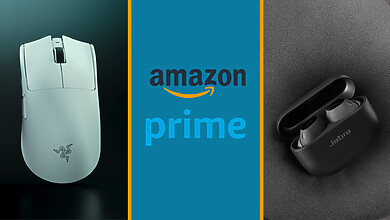Around a decade has passed since the implementation of 4G, and now it seems that the world is ready to move on to the next generation of mobile connectivity – 5G.
Such is the hunger for this new technology that countries are competing on being the first to introduce it within their cities. US-based telecommunications provider Verizon Wireless recently went into a war of words with South Korea’s SK Telecom, dismissing the latter’s claims of being the first in the world to launch a 5G mobile network.
But beneath the glitter and glow of 5G, is there anything that we Singaporeans should be getting excited for?
There seems to be huge optimism for what 5G might be able to provide to the world. John Hoffman, CEO of GSMA Ltd, likened it to the start of the next industrial revolution during his opening address at MWC19 Shanghai.
Through the increase in connectivity speed, various possibilities of implementation have been mooted. Mats Granryd, Director General of the GSMA, mused that the technology would be of great help to people with limited access to banking systems.

Citing an example, he explained that working women in Ghana – which has strong patriarchal social cultures – will now be able to save their cash electronically through mobile using the power of 5G, safe from the hands of their spendthrift husbands.
He also highlighted how 5G is set to have a significant impact on the medical field. During the conference, a live 5G-based remote surgery on a human was demonstrated in what is seen to be the new standard in medical surgery. Performed by Dr Antonio de Lacy, the Head of Gastrointestinal Surgery at the Hospital Clinic in Barcelona and co-founder of AIS Channel, he was able to conduct the operation 8 kilometres away, and successfully drew recommended incision points and pointed out potential problem areas – from a screen at the MWC19 venue.

No longer will time and resources be wasted in bringing an expert to oversee a particular surgical case. The 5G network is able to solve common problems like video lag and remote control delay experienced under the 4G network, ensuring a nearly real-time operation. 5G will facilitate the process through a mobile platform, along with other technologies such as Augmented Reality to be used in combination to bring a new dimension to the surgical process.
For the masses, the prevalence of 5G streaming in today’s society means that the next step in its evolution would be in streaming video games.
Video game streaming has had a turbulent history. Onlive, a cloud technology company based in the United States, offered a game streaming service to the mass market in 2010 and it failed spectacularly, owing to inconsistent connection speeds which made it impossible to enjoy playing a game.

With 5G forecasted to have speeds similar to current broadband connection speeds, it is believed that video game streaming can now be a reliable service for consumers to enjoy.
Looking at the requirements for the upcoming game streaming platform Google Stadia, the maximum requirement for video game streaming enables a 4K/HDR-enabled video, a 60 fps frame rate and 5.1 surround sound is 35Mbps. With 5G’s projected 100Mbps speed, it will be more than sufficient to support the Google Stadia platform.
These are indeed very intriguing implementations and advancement, but place it in Singapore’s context, and 5G simply do not make much of an impact.
While the increase in connectivity speeds is something that many countries are crying out for, Singapore isn’t one of them. Singapore has one of the fastest mobile network speeds in the world, averaging at around 55.5Mbps.
The reliability of mobile speed can be seen everywhere in this little red dot, as Singaporeans are often seen streaming videos on their daily commute regularly. Even when underground, there is no problem with loading content. While the increase in speed that comes with the 5G network is nice, there is not much room for evolution with what we have already achieved.
Where alternatives to the handling of physical, cold hard cash are concerned, Singapore is already pioneering to be a cashless society, with many services such as DBS PayLah! and GrabPay leading the way in enabling users to send and receive money without using cash. The infrastructure is already here and the cashless movement is well emerging, so 5G does little to shape this market.
Game streaming is something that has the potential to penetrate the Singapore video games market, but it isn’t something we will see very soon.

Despite the multiple countries within the South-East Asian region offering one of the best wireless and mobile connection speeds available to the public, none of them is featured in Google’s list of 14 countries that will be able to experience the launch of its new Stadia platform.
This is a consistent narrative that befalls Singapore whenever innovation to technologies becomes available – we are always late to the game.
The advent of 4G brought about innovative new services to consumer lifestyle, such as the creation of companies like Uber in 2009, which quickly became a global brand. But even then, its services were not available to us till 2013, a full four years later.
Despite the government’s plans to launch 5G services in Singapore to be as early as next year, the sad reality is that we probably won’t feel the difference.
People are right to say that 5G is going to change the world like how 4G has done. Just don’t expect it to change ours, at least not immediately.
Photos by Jeremy Tan of the DANAMIC team.



